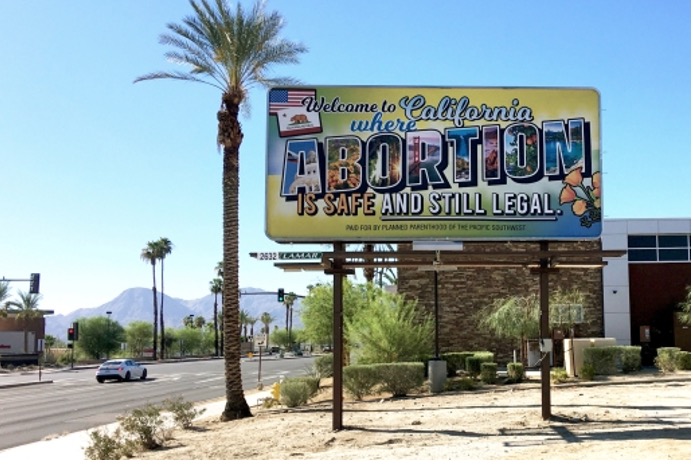CommentsGUEST COMMENTARY - In just over a month every voter in the State of California will be having their ballot mailed to them.
On that ballot voters will find statewide races for Governor and U.S. Senate, along with elections for Congress, State Senate, State Assembly, and a host of other local offices. Also on that ballot are the statewide ballot measures. Proposition #1 is a measure put to the voters to add an amendment to the Constitution of the State of California that would read:
“The state shall not deny or interfere with an individual's reproductive freedom in their most intimate decisions, which includes their fundamental right to choose to have an abortion and their fundamental right to choose or refuse contraceptives. This section is intended to further the constitutional right to privacy guaranteed by Section 1, and the constitutional right to not be denied equal protection guaranteed by Section 7. Nothing herein narrows or limits the right to privacy or equal protection.
Proposition 1 was hurriedly rushed forward in response to the Dobbs decision by the U.S. Supreme Court that overturned the decision of Roe v. Wade and returned the matter to the states. What that decision did not do, though, was to ban abortion. While the majority of Californians opposed the overturning of Roe, that was because in follow up questions, most Californians do not support the banning of all abortion and lacked the understanding that the overturning of Roe did not ban abortions. Rather, the majority of Californians do support abortion restrictions to prevent the termination of healthy, viable fetuses. In the hurriedness to place Proposition 1 on the ballot, those protections at risk of being lost.
In reality as stated in the Official Voter Information Guide, Proposition 1 is entirely unnecessary. “A NO vote on this measure means: The California Constitution would not be changed to expressly include existing rights to reproductive freedom. These rights, however, would continue to exist under other state law.” Again, it goes on to state, “Existing California laws provide that every individual has a fundamental right to privacy in their personal reproductive decisions, which includes the fundamental right to choose to have an abortion and the fundamental right to choose or refuse contraceptives.”
Under the Reproductive Privacy Act the state is prohibited from “denying or interfering with a person's right to choose or obtain an abortion before viability of the fetus, or when the abortion is necessary to protect the life or health of the person.” However, Proposition 1 offers no such limitations or protections.
Proposition 1 flies in the face of the long-held view of most Californians that abortion should be safe, legal, and rare? Why overturn one abortion law to replace it with another that will see more abortions performed? Why push to expand access and increase the number of abortions? Why make abortions riskier and more dangerous with more “do it yourself abortions” ordered online, delivered by mail, with a woman never seeing a doctor to assess for any complications such as ectopic pregnancies, gestational age differences, or incomplete terminations?
In the days of ever widening divisions in politics, Proposition 1 actually affords Californians a unique opportunity to demonstrate common sense and unity – we could all actually agree. If you believe there should be fewer abortions for the sake of women and babies, then vote no on 1. If you believe in limiting abortions to protect healthy viable fetuses, then vote no on 1. If you believe abortion rights should be protected, you can still vote no on 1 – the law already is clear and voter guide even says so. In short, if you believe that abortion should be safe, legal, and rare – vote no on 1.
(Miran Kalaydjian is the Chair Education Public Health / Homelessness Committee Woodland Hills Warner Center Neighborhood Council [email protected])

















